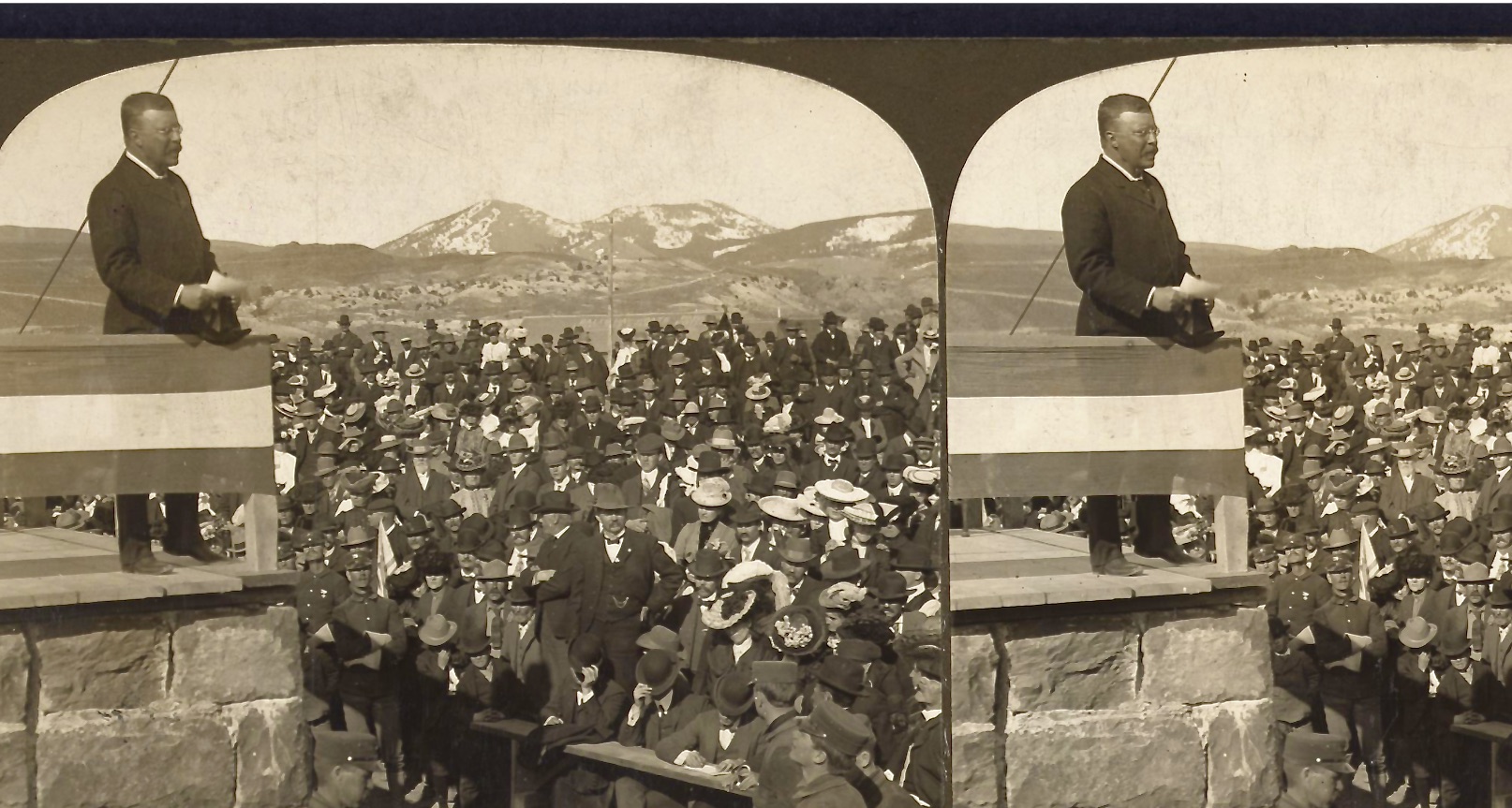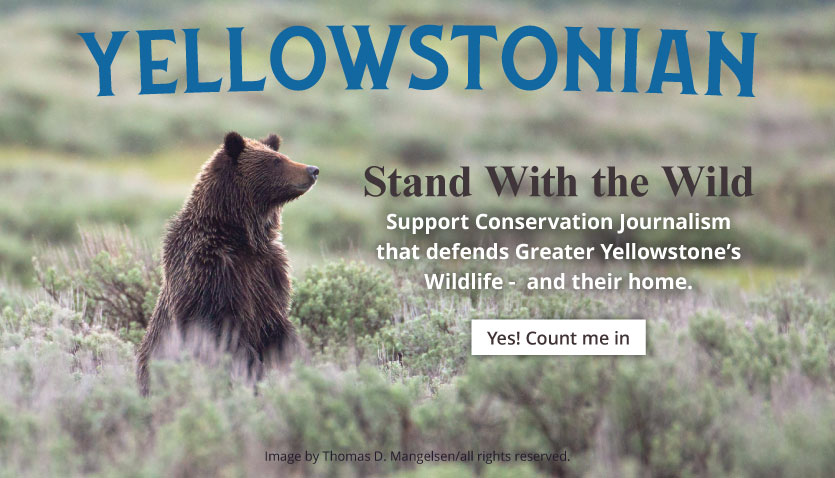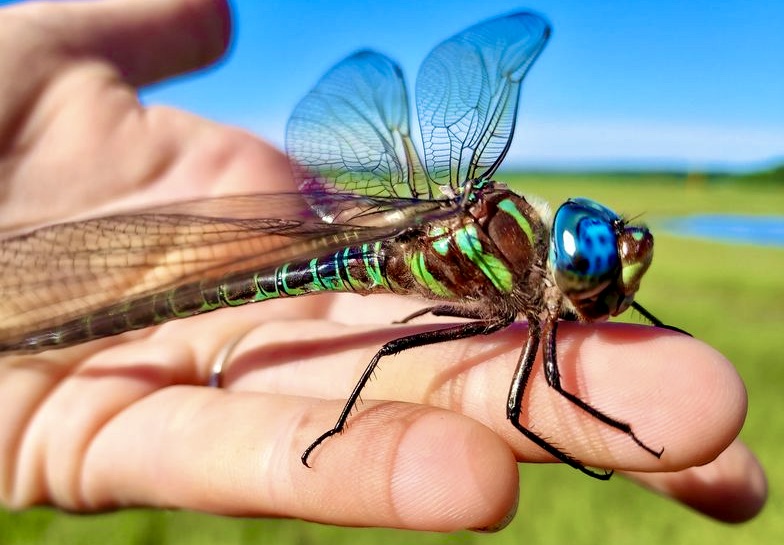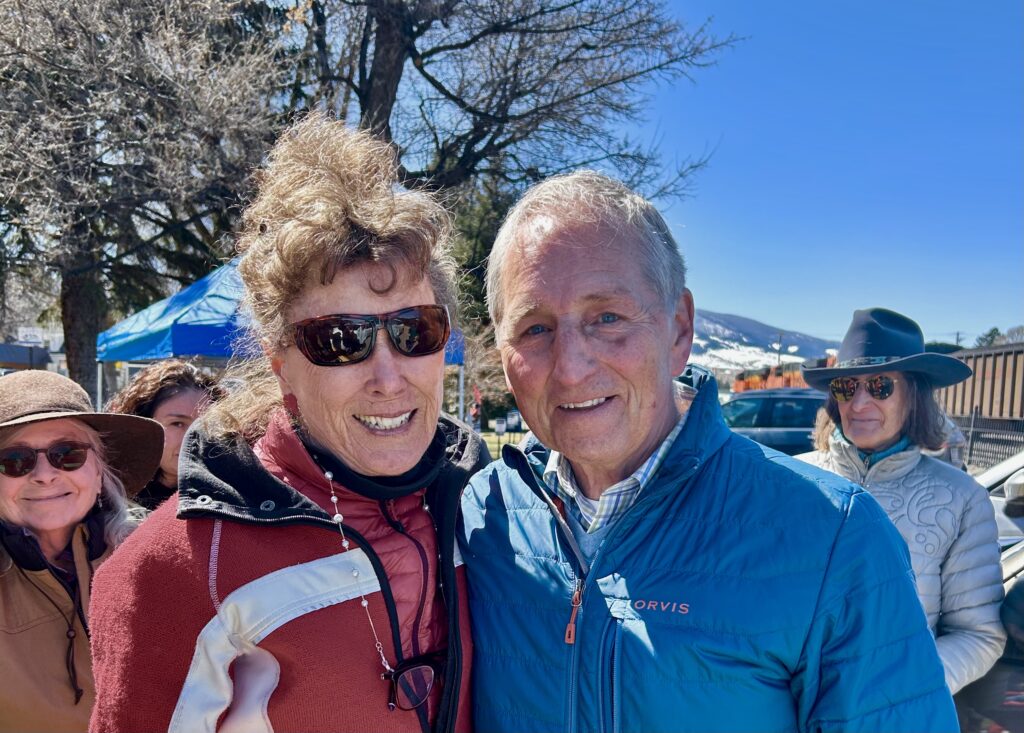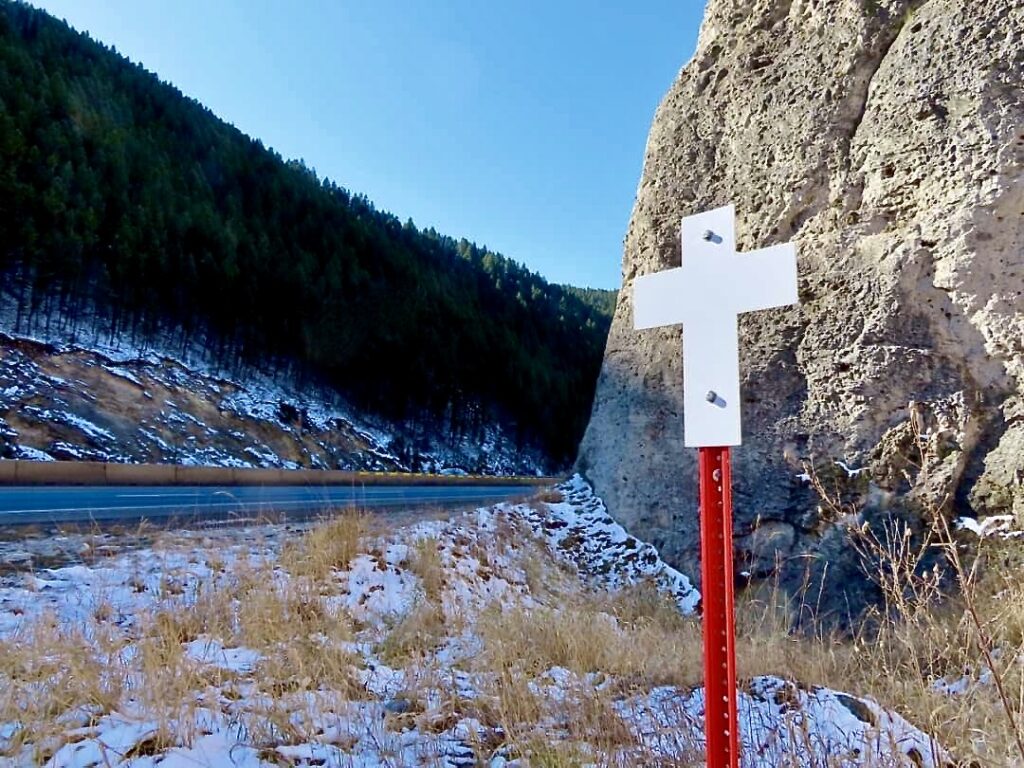by Yellowstonian
The great Western nature writer (and close friend of Yellowstonian’s) Terry Tempest Williams penned a moving essay a few years ago titled The Open Space of Democracy for the magazine Orion. In her piece, Williams notes how the legacy of our public lands are fundamentally interwoven into the fabric of who we are. We encourage you to read it. It’s a compelling call for citizens to not be passive, and to defend the places and institutions they hold dear. It also echoes of Theodore Roosevelt’s widely referenced allusion to “The Man in the Arena,” often parroted by Republicans, sports and business leaders, and, yes, hook and bullet conservation organizations.
Read the words by Williams and TR, then contemplate this if you live in the West or crave visiting it:
Try to imagine it in the absence of its public lands or disheveled, fragmented imitations. Picture the grand Greater Yellowstone Ecosystem broken into privatized chunks, without protected Yellowstone and Grand Teton national parks, without the national forests, three national wildlife refuges and sweeps of BLM lands. What would exist of the tradition of public land hunting and fishing, the multi-billion-dollar annual nature-based tourism economy, and protection of public wildlife, including imperiled species brought back from the brink?
How would working mom and pop ranchers get by if, instead of enjoying below-market-value federal rates charged to graze their livestock on public land, they paid 10 times as much to private landowners? What if the Forest Service was not spending half of its multi-billion-dollar annual budget subsidizing the costs of defending private homes built in wooded areas at high risk to wildfire?
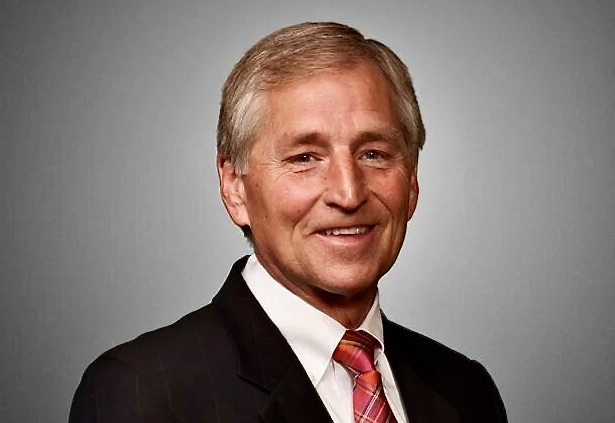
What if the thousands of dedicated civil servants who keep federal land management agencies functioning were not present in places where they are essential to the spirit of local communities? What if science-based management of those lands went away, and along with it the legal right of citizens to have a say in how these lands, which belong to all of us as part of our civic birthright as Americans, was abolished?
These are no longer abstract, unthinkable issues; many are in danger of happening without much thought, apparently, given to consequences. The biggest irony is that the newly created Department of Government Efficiency (DOGE), allegedly unleashed to identify dysfunction, is now sowing chaos, bringing paralysis to federal agencies that were not broken, and destroying the morale of workers. Read this Yellowstonian story about the possibility that the famed Interagency Grizzly Bear Study Team could soon be dismantled.
The truth is that the mystique of the American West itself in the world, and the identities of states like Montana, Wyoming and Idaho would cease to be without public lands. The Northern Rockies would function much like Texas, where wealthy, well-connected individuals rule over vast private land baronies like feudal lords.
Today in the state legislatures of Montana, Wyoming and Idaho, some lawmakers, in league with Interior Secretary and former North Dakota Gov. Doug Borgum, the clandestine activities of DOGE and abiding free-market ideologues are indulging their long-held fantasies about dismantling or privatizing agencies and handing over public lands to states, which then could sell them to the highest bidders. It’s also richly ironic perhaps that North Dakota’s most popular destination, Theodore Roosevelt National Park, is named after the Republican President who protected public lands against the forces of robber barons hoping to liquidate natural resources. Borgum has been described as a champion for a new age of robber barons.
Rick Lamplugh and Mary Strickroth are organizing two gatherings Saturday, April 5 in Livingston, and in Gardiner, Montana on the front doorstep of Yellowstone. The keynote guest speaker at the Livingston event is former two-term Montana Gov. Marc Racicot, who also served as former chair of the Republican National Committee. On May 22 in Bozeman, Racicot and Dorothy Bradley will appear together at a free non-political public event sponsored by Yellowstonian held at the historic Ellen Theatre. Mark it on your calendar
On top of this, there is widespread fear about other related actions potentially taken by DOGE: what if Social Security and Medicare benefits were slashed? How will the Veterans Administration provide better services if thousands of employees are put out of work? What if the US Postal Service went away—how would that affect rural communities? Already, DOGE has created havoc in the arts and sciences, slashing grants vital to research, medicine, arts and literature. Trump’s impetuous tariffs, sending negative shockwaves through the domestic economy, are rippling not only in individual retirement savings accounts but likely to chill consumer spending that has huge consequences for the regional tourism economy and businesses on Main Street.
A huge backlash is welling up and concern stretches across the political spectrum. With Congressional Delegations in the West refusing to hold or attend town hall hearings and answer reasonable questions from their constituents, citizens are stepping forward.
On Saturday in communities across the country, public rallies are being held. Rick Lamplugh and Mary Strickroth are organizing two of them in Livingston and in Gardiner, Montana on the front doorstep of Yellowstone. The keynote guest speaker at the Livingston event is former two-term Montana Gov. Marc Racicot, who also served as former chair of the Republican National Committee. He will be joined by Todd Wilkinson, co-founder of Yellowstonian, (which on May 22 in downtown Bozeman is hosting a free public event at the historic Ellen Theatre featuring Racicot and longtime Montana legislator Dorothy Bradley, who nearly defeated Racicot in the 1993 governor’s race. Mark it on your calendar).
Recently, Yellowstonian interviewed Lamplugh and Strickroth who are founders of the grassroots group Indivisible Park County and who also happen to be married.
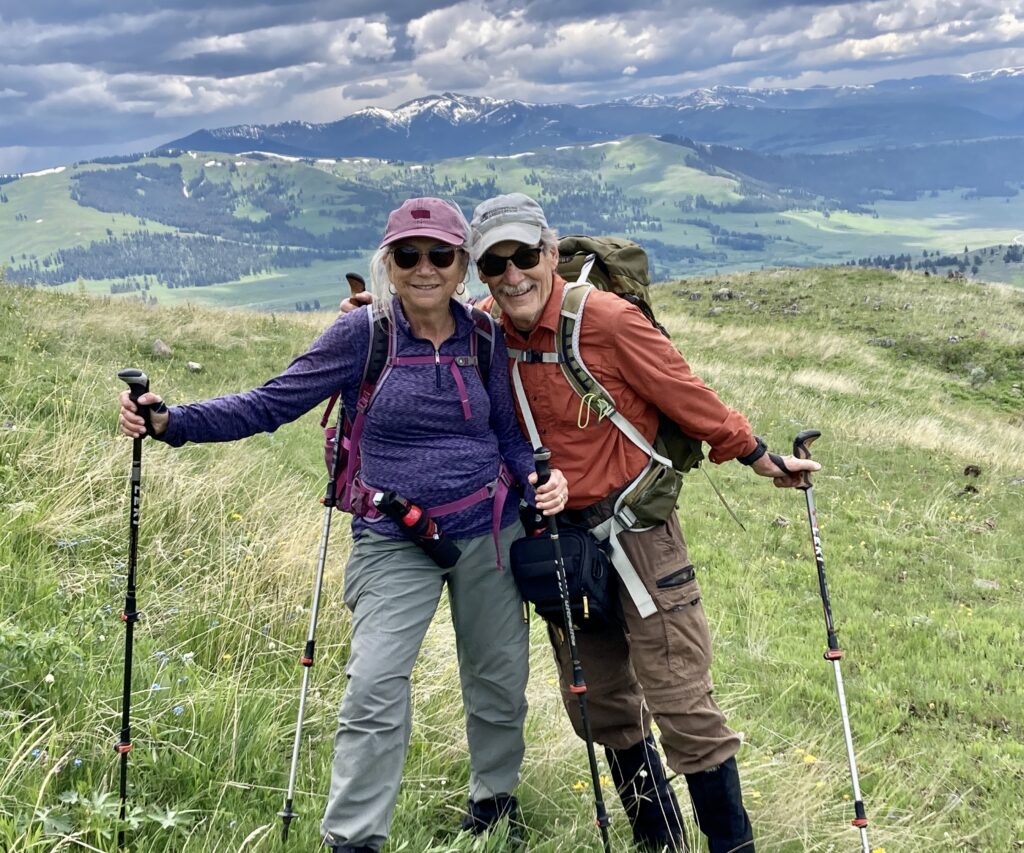
Yellowstonian: What is the motivation for staging this community discussion in Livingston and how would you describe the mood of people you interact with in southwest Montana?
Rick Lamplugh: Since co-founding Indivisible Park County with two friends from Gardiner, Mary and I have participated in virtual training sessions offered by Indivisible. One session focused on strategies for creating change in your local community. In our predominantly red rural area, the suggested approach is to “Talk to your neighbor.” This insight inspired us to organize a Community Conversation that transforms highly politicized issues into personal discussions.
The mood of the people I talk to runs the gamut. While the emotions expressed may be similar, the thoughts behind those emotions differ. Take anger, for example. Some individuals are angry at how the Trump Administration is attacking federal programs they value and need. Others agree with Trump’s actions and are angry at people like Mary and me who are pushing back. I also hear a lot of fear, particularly when I talk with our supporters and ask where they think all this is headed. When I speak with folks waving signs and chanting at rallies, I hear plenty of relief and happiness. It feels good to be surrounded by and take action with people who share your beliefs and values.
Yellowstonian: Tell us a little more about Indivisible Park County, how it has come together, and how you were able to land former Gov. Marc Racicot.
Mary Strickroth: On a Sunday evening about a month ago, Tah and Doug Madsen, two of our co-founders, invited us to a potluck in Gardiner to talk about how we might be able to support the illegally terminated Yellowstone Park and Forest Service employees who are our friends and neighbors. We were concerned about their well-being— how would they be able to pay their rent? how would they be able to find another job? how would they be able to collect unemployment if they were terminated for cause? how could they be treated so poorly?
As the night went on, we shared a litany of other concerns we saw emanating from the current administration. We knew other folks all up and down the valley may have similar concerns, so the idea of organizing a county-wide effort was hatched. As we drove to the potluck that night, Rick and I were talking about the national Indivisible organization, so toward the end of the evening, we asked our friends if they would be interested in forming a chapter. They all thought that was a good idea and I agreed to take the lead and look into it. Little did I know what I was getting myself into. We were up and running within 5 days, right before the March 1 rally at the Roosevelt Arch at the north entrance of Yellowstone which got national attention. The train had left the station. From our group of 15 potluckers, we now have a membership over 200 just by word of mouth in just over one month.
As for getting Marc Racicot to speak in Livingston at our April 5 Community Conversation, that part just fell in place pretty easily. He was a speaker at the Bozeman empty-chair Town Hall event that Indivisible Park County co-sponsored with Indivisible Bozeman. I was one of the MCs at the event, so I approached him on the sidelines before he even spoke, and asked him if he’d consider speaking at our April 5 event. We immediately brought out our phones to exchange numbers and look at calendars. His calendar was clear and he penciled us in.
Governor Racicot is on a mission to draw attention to the threats facing our Constitution and democracy. The nonpartisan nature of his remarks are really powerful and he has been incredibly generous with his time to spread the word across the state. He’s just great to work with and we are honored and grateful to have him speak this weekend in Livingston.
Governor Racicot is on a mission to draw attention to the threats facing our Constitution and democracy. The nonpartisan nature of his remarks are really powerful and he has been incredibly generous with his time to spread the word across the state
Yellowstonian: Yes, Yellowstonian is sponsoring an event featuring Racicot and his challenger in the 1993 Montana gubernatorial race, Dorothy Bradley, who narrowly lost to him in a close and hard-fought contest. Ours is a free event and will be held at the Ellen Theatre in Bozeman on May 22. Racicot and Bradley will be speaking about the need for unity.
The second part of your events this Saturday will be a protest as much against the cuts and trauma being inflicted on federal agencies as a rally in favor of public lands which are at the heart of our identity as westerners, central to our sustainable tourist economy, and inseparable from the health of our world class wildlife.What are you hearing from federal employees who can’t speak out and what do citizens need to know?
Strickroth: We’ve heard from folks who have been illegally terminated, many of whom have since been rehired, and then put on administrative leave. Even if they have been able to resume their jobs, they fear that the next round of cuts will impact them again. This yoyo that they’ve been put on has been incredibly stressful for them. They don’t know what’s coming next. They don’t know if they should be job shopping, moving out of the area, getting out of government service, and rethinking their careers.
Those that remain employed and were untouched by the February 14 Valentine’s Day terminations have told me in confidence that things at work are in chaos — the atmosphere is nerve-wracking and can be debilitating. Job duties have been shifted and re-shifted. Stop work orders have been issued for contracts underway.
The fallout of that is causing harm to our environment, from the impacts on biodiversity with the loss or delay of scientific research, to unremoved downed trees on our forest trails; from forest fire mitigation, to whether that forest service cabin you’re looking forward to staying at this summer will be cleaned and available for you as hoped; from public safety being impacted by the reduction in first responders, to resource protection without proper law enforcement staffing. We take all this for granted when it works properly, but when you throw a dumpster fire on it, that all changes.
“We’ve heard from folks who have been illegally terminated, many of whom have since been rehired, and then put on administrative leave. Even if they have been able to resume their jobs, they fear that the next round of cuts will impact them again. This yoyo that they’ve been put on has been incredibly stressful for them. They don’t know what’s coming next.“
Yellowstonian: Rick, you’ve been an ardent advocate not only of wild nature as a citizen and writer but a supporter of the professional civil service of the Park Service, Forest Service and other employees. What are your main concerns for not only those institutions in Greater Yellowstone but what cuts in personnel and budgets will mean for the operation of these crown jewel wildlands?
Lamplugh: I spent ten years as an active advocate for wildlife and wildlands. During that time, while I wrote two nonfiction books about Yellowstone and two Substack publications, I spoke with many employees at Yellowstone National Park and Custer Gallatin National Forest. We didn’t always agree on issues, such as how to coexist with wolves and bison, for example. However, I generally came away impressed with their love for and commitment to the land and wildlife they managed. I feel sad and angry about how these professionals are being treated by the Trump Administration. I fear what the loss of their experience and knowledge will mean for the wildlife and wildlands I love.
Yellowstonian: The National Park Service has been one of the most beloved federal agencies largely because of the people with whom the public interfaces and are safeguarding natural wonders that belong to all of us.
Lamplugh: In terms of impact on these crown jewel wildlands, the staff that are being tossed away by Musk and Trump are not “waste.” Without trail crews, visitors to the Custer Gallatin National Forest and the Absaroka Beartooth Wilderness will find far fewer accessible hiking trails. With fewer employees to clean and care for lodging and restrooms, the experiences of visitors will suffer. With fewer law enforcement workers, the park, the forest, the wilderness, and the wildlife are at increased risk. In particular, I fear an increase in the poaching of wolves. With fewer employees to fight fires, I fear more damage to the wildlands and the surrounding communities.
I also worry about what will happen to the economy of gateway communities. Mary and I lived for ten years in Gardiner and we saw firsthand how fire, flood, and COVID harmed the town’s businesses. I can see those businesses and the community hitting hard times again. I’m glad that two coalitions, the Yellowstone Gateway Business Coalition and Wild Livelihoods, have committed to fighting for local businesses and communities. I’ve joined both.
“In terms of impact on these crown jewel wildlands, the staff that are being tossed away by Musk and Trump are not ‘waste.’ Without trail crews, visitors to the Custer Gallatin National Forest and the Absaroka Beartooth Wilderness will find far fewer accessible hiking trails. With fewer employees to clean and care for lodging and restrooms, the experiences of visitors will suffer. With fewer law enforcement workers, the park, the forest, the wilderness, and the wildlife are at increased risk. In particular, I fear an increase in the poaching of wolves.“
Yellowstonian: Last question for both you. You hail from a earlier era when civics was taught in the classroom and told that advocating for the good of community, for the good of country, and giving a voiceto things that have no voice, was one of the highest expressions of responsible citizenship. Tell us about the dynamic of the two of you and husband and wife, and if you were standing in front of a large crowd of young people, 30 and under, what lessons would you share about you’ve learned since you were their age?
Lamplugh: This is a very interesting question. Mary and I work together every day to help form and build Indivisible Park County. We four co-founders have agreed that Mary is the front of our organization and the three of us are in the background, supporting her and the organization. So, for example, when Mary wrote the script for moderating the upcoming Community Conversation, she sent it to me to edit. Thankfully, I agree with what she wrote, and she agrees with my edits.
Regarding lessons I would share with younger folks, my main message is, “Know that in a democracy, groups have power. Taking it to the streets can save our constitution and democracy.”
I would share that after I finished my enlistment in the US Army in 1970, I went to Washington DC to protest the Vietnam war. The joy I felt and the strength I gained by protesting with others-especially other veterans—is similar to what I feel when protesting today. Those earlier protests helped stop the Vietnam War. Today’s protests can help stop Trump’s dismantling of our nation’s treasures that are the envy of the world.
Regarding young people, I would share that their generation has a lot at stake. Our world is on the brink of changing for the worse. I’m 76, and while I’ve learned a lot in my years, I likely have far fewer years left than they do. I don’t want to see them, or our two kids, or our granddaughter, have to live in an autocracy controlled by and for billionaires.
Strickroth: You know, I am old enough to remember the Civil Rights Movement, but I was just a teenager living in Baltimore at the time. I was more of an observer, but it still affected me deeply. I’ll never forget the nightly news body count of Vietnam casualties. I remember the curfews and the bigotry, the riots and the marches of Civil Rights advocates. I was pretty awestruck by the courage that otherwise normal people had to fight systemic racism and put pressure on Johnson and Nixon to end the war.
Now, rather than just bearing witness to the demise of our constitutional democracy, I am compelled to personally rise up and say “Enough!” I admit the wisdom I’ve accumulated during my lifetime lets me recognize that the time to act is now and to muster the courage to do so.
Through the work of Indivisible Park County, I am meeting many new people, many young people. And I am inspired to see so many of them at gatherings with their infants, toddlers and children in tow. They are active and stay informed because their lives, livelihoods and way of life are at stake. They’re present because they want their children to inherit a better world. My heart just goes out to them.
Yellowstonian: With all due respect for young people, where are they? Where are the young outdoor recreationists who claim to be passionate advocates for protecting public lands?
Strickroth: There are many young people, even in my own family, who aren’t paying attention, who have no idea what’s going on, and who don’t exercise their right to vote. I can only reflect how disenfranchised they must feel — their world is entirely different than what my world was when I was their age. They’re struggling to make ends meet; they’re trying to find adequate childcare and healthcare when their kids are sick; they’re worried that their children may be victims of mass shootings in school or at the mall; they’re swamped by stuff on the internet and consumed by pop culture; and they feel completely unrepresented by our current two-party system.
I’m in the fourth quarter of my life, and they haven’t even gotten to halftime. It’s hard to relate to each other. But I recognize that my 14-year-old granddaughter has fewer rights now than I have had. So I try to listen, to understand their stresses and challenges, and reflect back to them that giving up their voice, their vote, and surrendering to this administration could be the biggest loss of their lifetime. I remind them that it was because movements like those during the 60s and 70s, comprised of passionate young voices such as their own, changed the course of this country. And I encourage them to take the helm and do that again for their sake and the sake of the children.
The hour-long program for the Community Conversations event
Saturday, April 5 at Livingston’s Depot Rotary Park
- 12:00-12:07 Mary Strickrorth’s Opening Remarks & Intro of 1st Speaker
- 12:07-12:17 1st Speaker – Marc Racicot – on Constitution/democracy
- 12:17-12:22 Q & A for Marc Racicot
- 12:22-12:23 Mary introduces 2nd Speaker
- 12:23-12:33 2nd Speaker – Todd Wilkinson – on public lands and harm to public agencies
- 12:33-12:38 Q & A for Todd Wilkinson
- 12:38-12:39 Mary introduces 3rd Speaker
- 12:39-12:49 3rd Speaker – Julie Williams – on Medicaid/disability services
- 12:49-12:54 Q&A for Julie Williams
- 12:54-12:55 Mary introduces 4th Speaker
- 12:55- 1:05 4th Speaker – Rick Lamplugh – on Veterans Affairs
- 1:05- 1:10 Q&A for 4th Speaker
- 1:10- 1:15 Mary – Closing remarks

